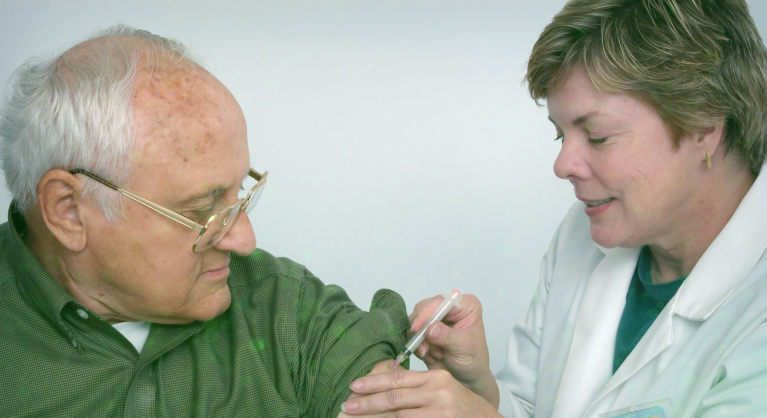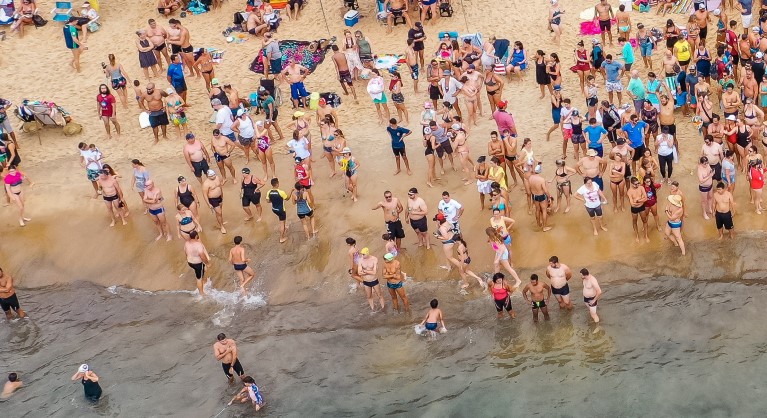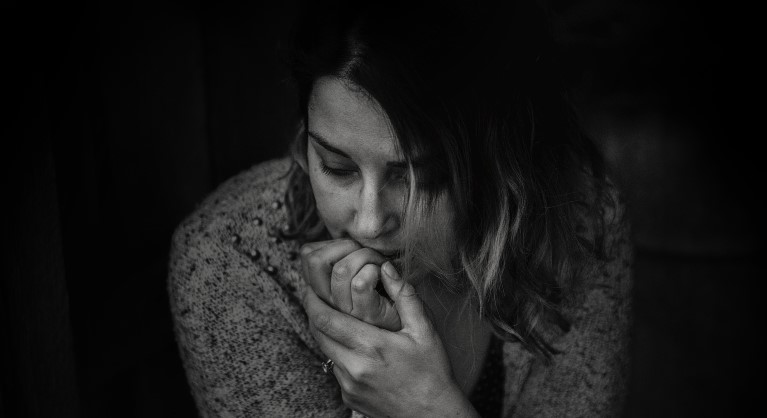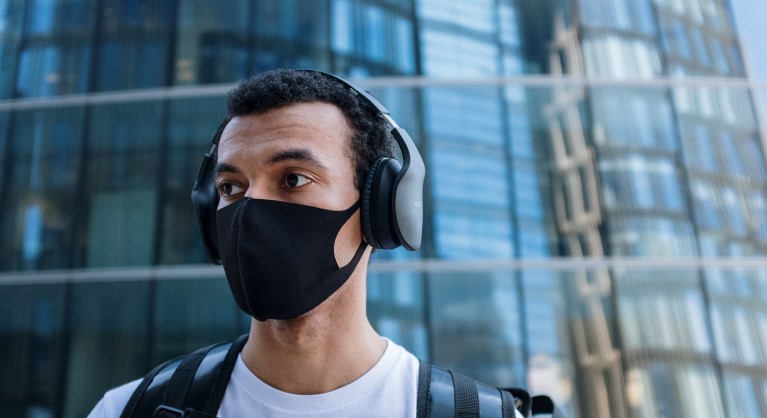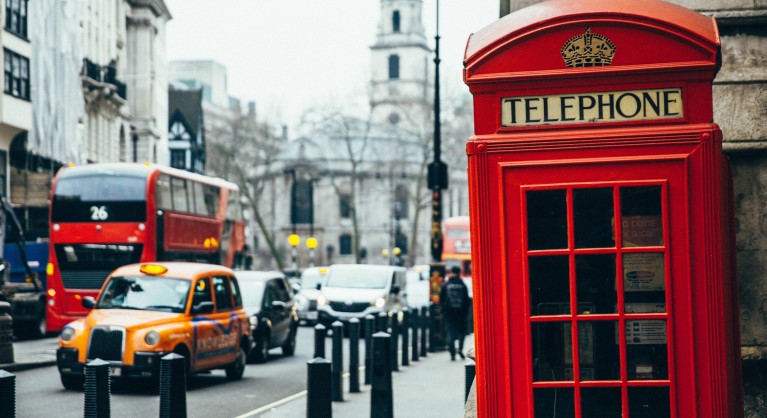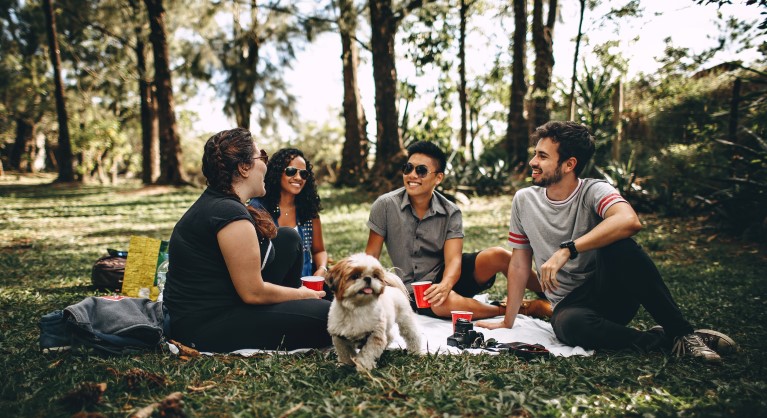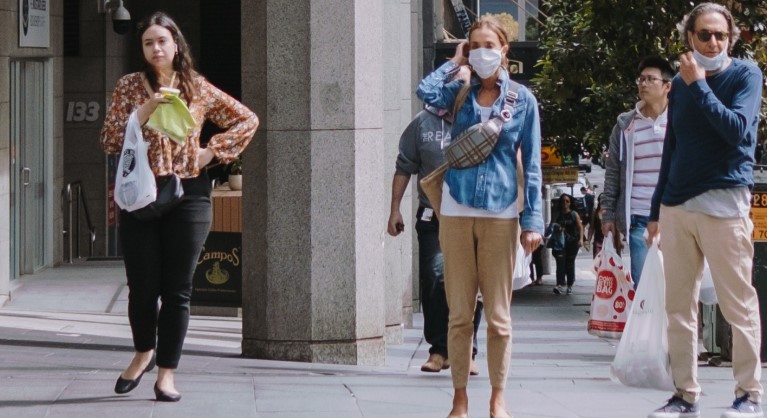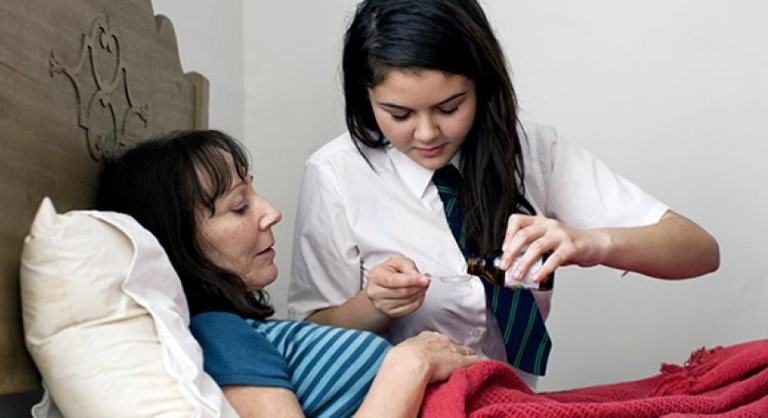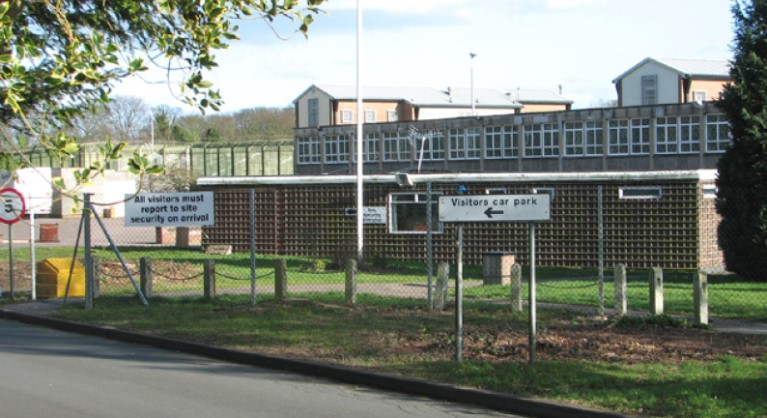Behaviour and society in a time coronavirus
Four things you may not know about vaccination
Covid isn't the first time we’ve tried to mass vaccinate. In fact, immunisation occurred long before we may think. In ancient China and India, small amounts of smallpox were used to generate mild cases of the disease. Yet being wary of new vaccines is nothing new. A lot was written about anti-vaccinationism in the 19th century against compulsory smallpox vaccines. In the 1940s, similar concerns were raised about diphtheria.
Covid-19: Negotiating Christmas
For many, the lifting of some restrictions for Christmas will be a source of joy. For others it's a frightening prospect, accompanied by a fear of Covid-19 spreading uncontrollably, with a dreadful payback in the new year. Yet research suggests that wellbeing and happiness enhance the working of the body and immune response, whilst giving, kindness and volunteering improve wellbeing, and may improve immunity.
How can personality affect who follows the rules?
Warwick Business School researchers have studied Covid-19 rule compliance. Conscientious and 'intellectually curious' people are more likely to comply with the rules, whilst extroverts were 7% less likely to follow rules than introverts. The way people respond to advice on preventing transmission can be just as important as Government actions, if not more so. The research suggests different personalities could benefit from different messaging.
Supporting South America's favela communities to be more resilient against Covid-19
Warwick researchers are working to strengthen resilience to Covid-19 in poor urban communities in Colombia and Brazil. They are helping gather citizen data to enable food parcel distribution, safe waste disposal, and access to healthcare and social security during lockdown. The project will help communities combine local knowledge with modern data science to protect themselves and be heard by policy-makers.
They think it's all over: Government messaging and public behaviour
In the summer, people flocked to beaches, camped illegally and hosted street parties. With pubs open again, disregard for social distancing increased. But the UK is far from free of coronavirus. So why are we taking Covid-19 risk less seriously now? Dr Kieran File from the Department of Linguistics thinks some government messaging could be lulling us into a false sense of security.
New study to evaluate the pressures of Covid-19 on working-class women
Learn how Warwick researchers are collaborating with the University of Nottingham to explore the impact on Covid-19 on working-class women in the UK. In order to create a detailed picture of how working-class women respond to pressures imposed by the virus, the research will examine various financial, domestic and health difficulties experienced during the pandemic.
Will face masks become the new normal in Europe?
Most European countries have introduced the compulsory wearing of face masks in certain settings - such as shops and hairdressers. Prior to Covid-19, mask wearing was uncommon in Europe. As such, a person wearing a mask in public required explanation, as it went against cultural expectation. With Covid-19 changing many aspects of our lives, we examine shifting perceptions, and how likely mask wearing requirements are to be followed.
Informing London's response to Covid-19 lockdown
London is a particularly complex and varied environment in which to understand the effect of the pandemic on people’s lives. Our researchers at The Alan Turing Institute are delivering crucial insights to help London authorities plan for a post-lockdown future. The project will provide a picture of behaviour by comparing normal levels of activity with activity during lockdown, including insight into changing behaviour.
Could releasing young adults first be best route out of lockdown?
Releasing people aged 20-30 who no longer live with their parents could provide first step out of UK’s lockdown. Young adults aged 20-30 could become increasingly restless over time and flout the lockdown restrictions, creating a domino effect that undermines public safety. The proposed strategy could help policymakers balance the health risks of the virus, and the need to avoid an “extraordinary recession.”
Behavioural science and responding to the pandemic
Professor Ivo Vlaev from WBS is part of the Covid Behaviour Change Unit advising the NHS. The unit embeds behavioural science into policy decisions, and uses research to aid social distancing compliance. His research and expertise in applying behavioural science insights or ‘nudges’ to alter people’s behaviour in health situations has become invaluable during the crisis, as the UK tries to enforce social distancing.
Young person - big responsibility: Young carers and Covid-19
Despite increased awareness of and support for young carers, there is still limited state recognition of the role that many young people play in meeting the needs of chronically ill family members. While Covid-19 and the lockdown has major implications for everybody, it poses particular challenges for young carers and their families, explains Dr Michael Wyness from the Centre for Education Studies.
The challenges of pandemics in prisons
Jails are high-risk environments for disease. Prisoners are particularly vulnerable – coronavirus spreads rapidly in conditions of overcrowding, and many prisons have limited healthcare and poor hygiene. Enhanced cleanliness and the early release of inmates are now being considered. The crisis also reminds us of the vulnerability of institutionalised populations when epidemic disease takes hold.
The war on Covid-19: Lessons from wartime
Many people have likened the war on Covid-19 to World War II. The pandemic is changing the way of life of every family worldwide, in a way quite unlike 9/11 or a recession. Our world after Covid-19 will be more nervous, more prepared, and less globalised and interlinked. What are the similarities in challenges facing governments now and at the start of World War II, and how have past governments have coped with unprecedented and lasting change?

